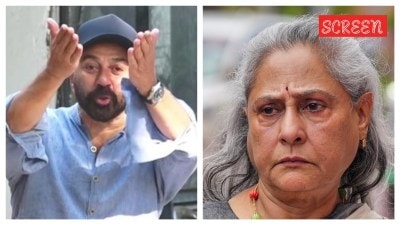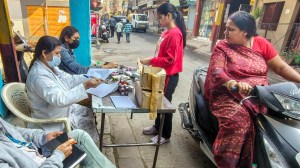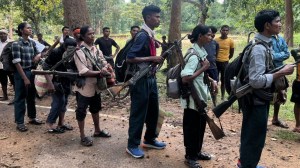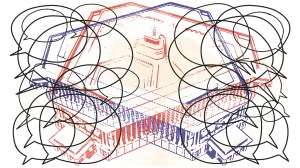Numbers using Gujarat govt buses down to Hum do, hamare do
SURAT, AUG 10: Drivers and conductors of Gujarat State Road Transport Corporation GSRTC have taken to describing their trips with an unb...

SURAT, AUG 10: Drivers and conductors of Gujarat State Road Transport Corporation GSRTC have taken to describing their trips with an unbelievably low number of passengers as Hum Do, Hamare Do.
The cheap mode of transport started losing its appeal last year after the Gujarat government announced an increase in fares to offset the hike in fuel prices. The long drought as well as availability of cheaper, though slower, transport options in rural areas have also robbed the bus service of their passengers. Drivers and conductors are often seen 8220;courting8221; passengers at bus stations 8212; a far cry from the days when they dismissed their questions with an angry comment.
8220;It is not uncommon for us to have only one or two passengers in the bus,8221; a driver says, explaining why the population control slogan caught the staff8217;s fancy.
A frequent commuter says he often stretches himself out on the seats and is woken up by the conductor when his stop arrives. 8220;I have not seen a bus carrying passengers to even half its capacity in the past seven or eight months,8221; he adds.
8220;We have to start buses on time. We can8217;t wait for passengers like the private operators,8221; says Vadodara divisional controller K.A. Baraiyya, admitting that income has gone down considerably. Sources put the division8217;s total loss at Rs 7.52 crore in the past six months alone.
Railway mishaps and festivals are the only times when passengers are seen in large numbers at bus stations. Buses heading to religious places are the saving grace for the loss-making corporation, which keeps adding new buses to its fleet despite the grim situation.
Add to that the 180 or more routes started when the government decided to reward every MLA with one route in his or her constituency. 8220;They have started buses from villages that are not only not traced on the map, but those whose names were heard for the first time when the service was introduced,8221; says a GSRTC official.
Another official blames the bus chhodo leave buses phenomenon on the proliferation of smaller vehicles like tempos and matadors, which shuttle between fixed points, and the authorities8217; failure to prevent them from operating near bus depots and stations. Every District Collector issues a notification to that effect but nobody implements it, laments the official, adding: 8220;We have no power to take action. Only the police can do that.8221;
While everybody accepts that road transport is a utility, they are wondering how far the Corporation can go to attract passengers. A trade unionist compares the GSRTC to a hen. 8220;The Congress ate eggs, now the BJP is out to eat the hen,8221; he says, alleging that rampant corruption and indiscriminately introduced routes are the main cause of the losses.
A member of Surat ST Karmachari Union says GSRTC should stop plying luxury and semi-luxury buses that the common man finds unaffordable. 8220;The traffic is diverted to private operators who break every rule in the book. We draw passengers only for a couple of months in the entire year,8221; he says, wondering why the Corporation keeps buying new buses when many buses are lying idle in a Surat depot.
Gandhinagar-based Transport Secretary R.M. Patel says the long spell of drought last year crippled the poor. The Corporation, he asserts, is not going to make a profit if it cancels unviable routes. He blames the losses on the wages paid to employees.
8220;We have covered almost 98 per cent of the villages in Gujarat,8221; he says. But just have a look at the buses. There are little or no passengers.8221; Just like the driver said, Hum do, hamare do.
- 01
- 02
- 03
- 04
- 05































